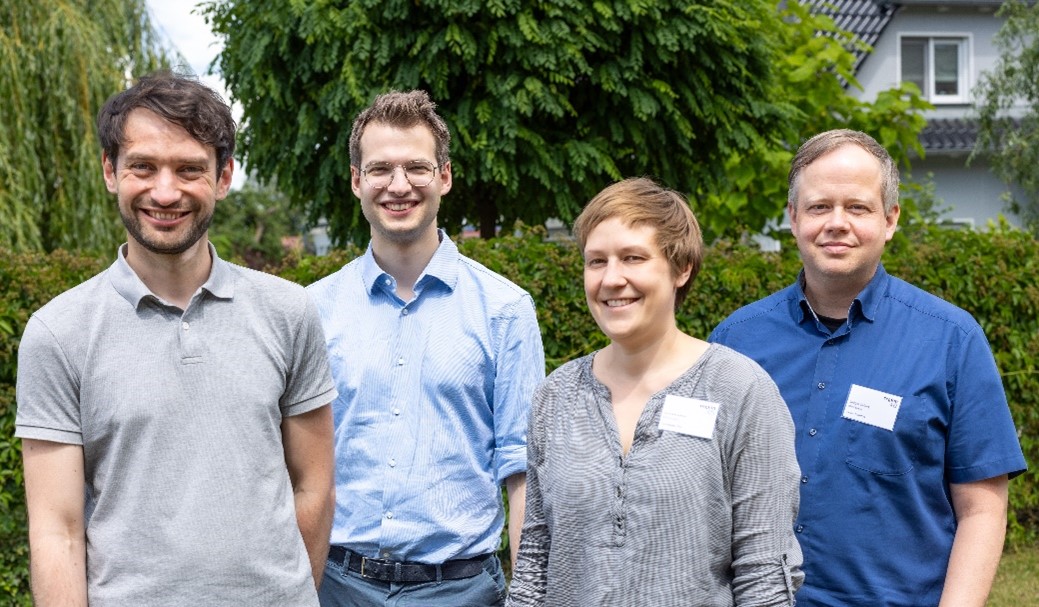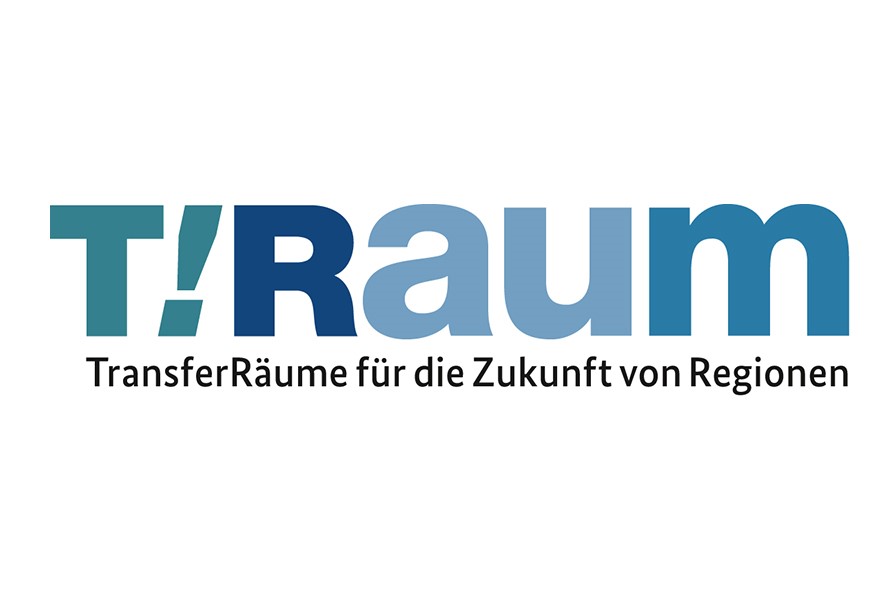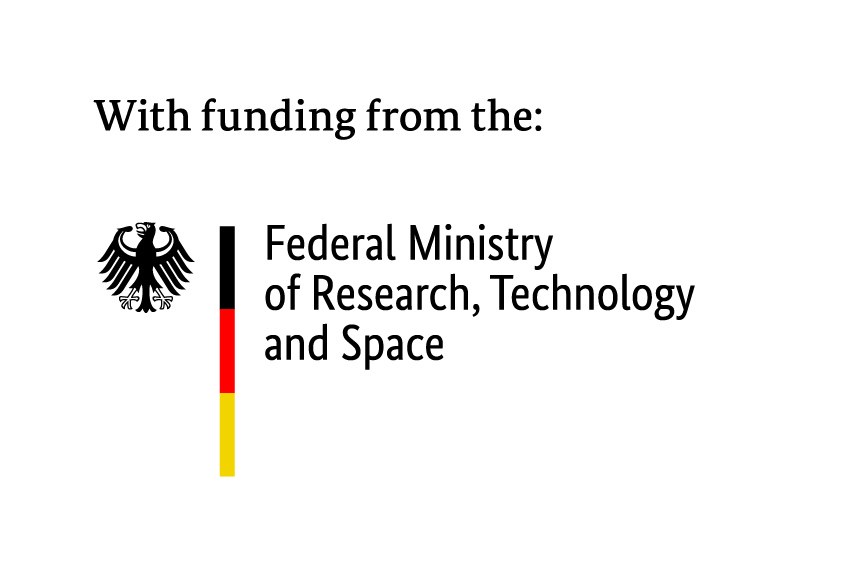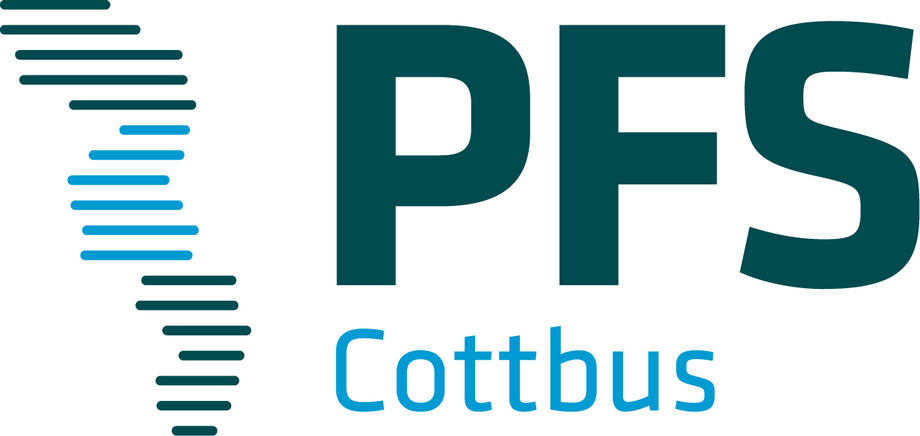Current ongoing research projects
The following research projects are currently being carried out at the Department of Regional Planning:
Collaborative project Cross-InnoNet: Cross-border public services Berlin-Szczecin. A governance network in the health and mobility policy fields along the modernized train route Sub-project: CrossInnoGov: Governance and networking in the field of cross-border public service
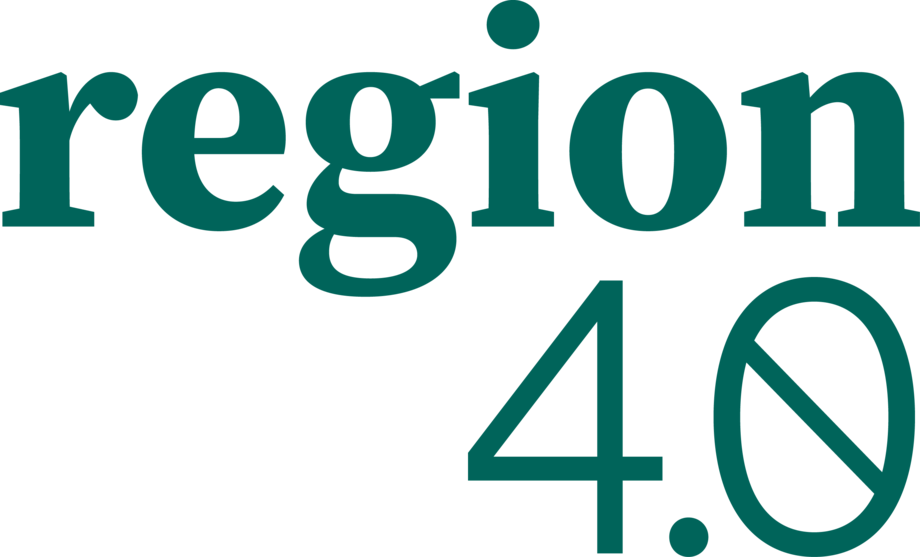
Collaborative project coordination: Dr. Peter Ulrich, Prof. Dr. Ludger Gailing
Project team: Leonard Weiß and Martin Reents
Collaborative partners:German Institute for Specialist Medical Care Research (DIFA)
Regional cooperation partners: DB Regio AG (Regio Nordost), Verkehrsverbund Berlin-Brandenburg (VBB), Eberswalde University for Sustainable Development (HNEE), working group UCKER Warentakt (Uckermärkische Verkehrsgesellschaft UVG & HNEE), University of Potsdam (Kommunalwissenschaftliches Institut), University of Szczecin (Institute of Spatial Management and Socio-Economic Geography)
Funding organisation: Federal Ministry of Education and Research (BMBF), funding line "WIR! - Innovation and structural change", WIR! alliance "region4.0" (coordinated at HNEE)
Regional innovation cluster: WIR! alliance „region4.0“ (coordinated at HNEE) representing and covering the region Barnim-Uckermark in the Northeast of Brandenburg
Duration of the project: 09/2022 - 03/2025
The collaborative project "Cross-InnoNet" examines how cross-border public services in the rural region along the railway line between the metropolitan regions of Berlin and Szczecin can be empowered by creating a governance network in the policy fields of health and mobility. The governance network will also involve cross-border German-Polish networks.
The railway line will be extended and modernized until 2025/2026. In the context of the project, the expansion and modernization of the railway is understood as an innovation impulse to empower the region along the railway nodes through this governance network. In the sparsely populated, peripheral and structurally weak region, the project aims to strengthen the sustainable accessibility of the services and the networking of basic service providers across borders. As a part of the project, a governance network is being created along the route and a digital service schedule is being developed based on scientific data on health services provision and mobility patterns in the cross-border area along the railway line.
The collaborative project is coordinated by the BTU's Chair of Regional planning and carried out together with the German Institute for Specialist Medical Care Research (DIFA). It focuses on the policy fields of health and mobility. The collaborative project consists of two sub-projects - sub-project 1 "Cross-InnoGov: Governance and networking in the field of cross-border public services" of the BTU and sub-project 2 "Health care atlas and network of health, outpatient and specialist care in the 'region4.0'" of the DIFA.
Space of Transfer Alterperimentale: Governance, Strategy and Evaluation (AlPerLP1)
Principal investigator at the Chair of Regional Planning: Prof. Dr. Ludger Gailing
Project team: Sunna Kovanen, Christoph Thewes, Luisa Geldbach, Undine Peiker and Sarah Weber
Funding organization: Federal Ministry of Research, Technology and Space (BMFTR)
Link to funding website:https://www.innovation-strukturwandel.de/strukturwandel/de/innovation-strukturwandel/t_raum/t_raum_node.html
Duration: 08/2023 - 07/2026
Space of Transfer is part of the transfer alliance „Alterperimentale“ which is being implemented in cooperation with the following partners:
BTU Cottbus-Senftenberg, Chair of social services for structural weak regions
Prof.in Dr. Alexandra Retkowski (alliance coordination)
Katholische Hochschule Berlin, Fachgebiet Soziale Arbeit in der digitalisierten Gesellschaft
Prof.in Dr. Cordula Endter
Praxisforschungsstelle Heinersdorf (under sponsorship of Katholische Hochschule Berlin)
Annegret Huth
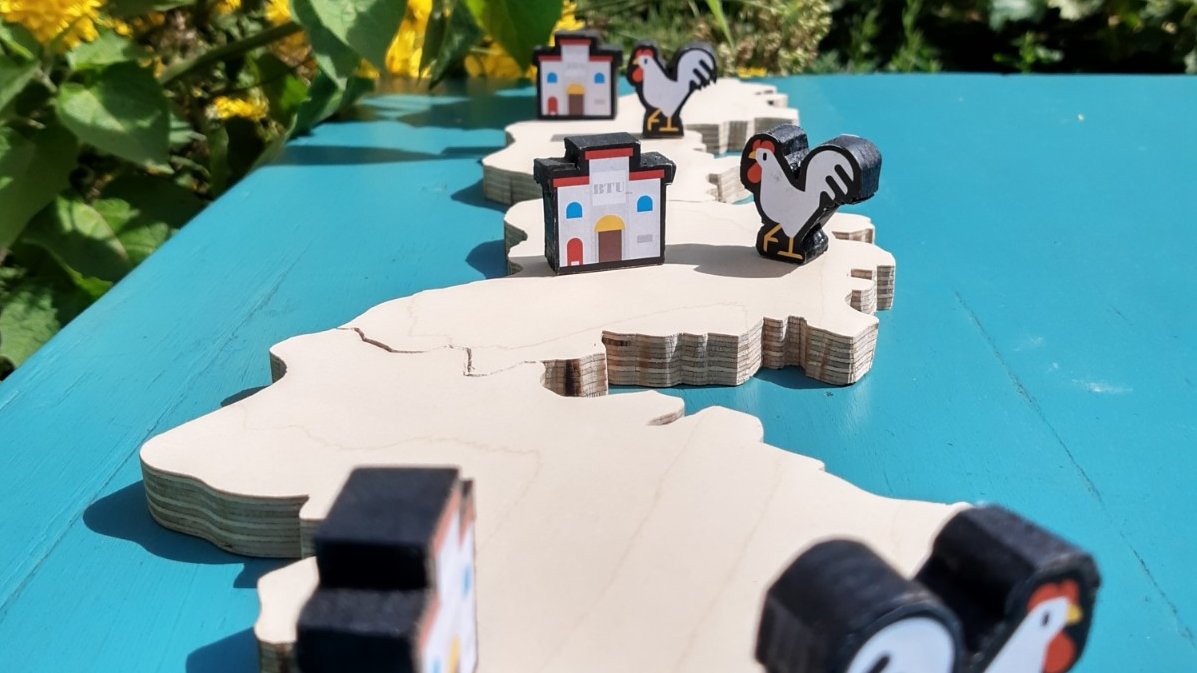
"Transferraum" is one of the two steering projects of the transfer alliance “Alterperimentale”. The transfer alliance aims to meet the challenges of the demographic structural changes in the fields of public services and care work - thereby enhancing the conditions for ageing well in rural regions. At the core of the transfer approach, decentralized practice-research centers act as local knowledge transfer spaces. They coordinate the cooperation and mutual learning processes between research and practice, ensure participation and identify research questions regarding the transfer alliance's research topics. "Transferraum" spans across the administrative districts Oder-Spree, Spree-Neiße and Görlitz. The civil initiative, Practice-research-center Heinersdorf serves as a provider of ideas as well as a template for the yet to be established research centers in Cottbus and Görlitz in cooperation with BTU Cottbus-Senftenberg and Hochschule Zittau/Görlitz.
The project "Transferraum" of the Chair of Regional Planning organises the greater strategy development and the evaluation of the "Alterperimentale". Furthermore, it is responsible for the operational management, the scientific communication and the institutionalization of the transfer approach. The overarching goal of the project is to establish the "T!Raum Alterperimentale" and its transfer activities in the region. The exchange of knowledge and the cooperation with the partners and within the entire network are organised in close collaboration with the second steering project which takes care of developing already existing and new transfer formats. On a theoretical and empirical level, "Transferraum" contributes to the socio-ecological transformation of regional welfare structures and to the acceptance of regional transformation processes. In addition, it advances the development and application of spatial theories in these fields.


BB-L Interconnection: Vision for a joint interaction area
Project management at the BTU: Prof. Dr. Ludger Gailing
Project team: Martin Reents
Consortium partners: Marshal’s Office of the Lubuskie Voivodeship (lead partner), Joint Regional Planning Department Berlin-Brandenburg
Funding organization: Interreg VI A Cooperation Programme Brandenburg-Poland
Duration: 04/2024 - 03/2027
Link to project website: In preparation
Link to support measures website: https://interreg-brandenburg-polska.eu/
In cooperation with the Marshal's Office of the Lubuskie Voivodeship and the Joint Regional Planning Department Berlin-Brandenburg, the Department of Regional Planning at BTU Cottbus-Senftenberg is implementing the Interreg A project “BB-L Interconnection: Vision for a joint interaction area” until 2027. The aim of the project is to strengthen administrative cooperation and spatial linkages between East Brandenburg and the Lubuskie Voivodeship.
The project focuses on the following tasks:
- Intensification of administrative cooperation in the field of spatial and regional development, creation and consolidation of joint cooperation structures, knowledge transfer and exchange of experience
- Analysis of regional socio-economic opportunities and challenges in the form of a territorial diagnosis
- Preparation of two expert reports on polycentric settlement structures and the use of renewable energies
- Development of a joint vision for the future of the Brandenburg-Lebus interaction area, including recommendations for action
- Strengthening the identity as a joint interaction area
The spatial focus of the project lies on the funding area of the Interreg VI A Cooperation Programme Brandenburg-Poland and thus also corresponds to the area of the Euroregions PRO EUROPA VIADRINA and Spree-Neiße-Bober. Adjacent parts of the German-Polish interaction area and developments along supra-regional axes will be included in the project as required.
Conceptually, the project closes a gap, as regional concepts for spatial and regional development already exist for other cross-border sub-regions of the German-Polish interaction area (Saxony-Lower Silesia, Szczecin Metropolitan Region).
The project is funded by the European Union from the European Regional Development Fund (ERDF) as part of the Interreg VI A Brandenburg-Poland 2021-2027 Cooperation Programme. It has a total budget of EUR 1.02 million.
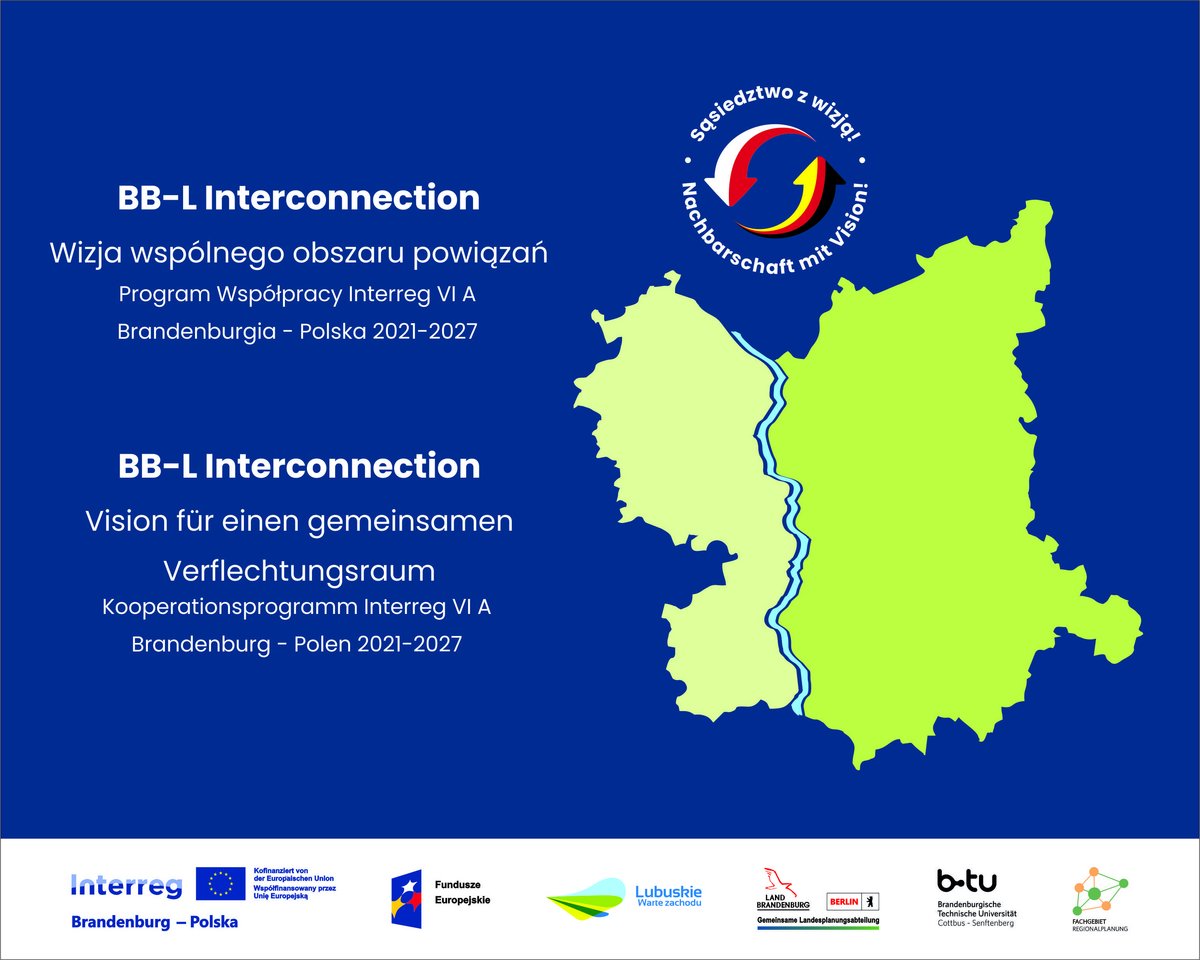
Space of Transfer Alterperimentale: Practice-research center Cottbus - Socio-technical innovations and socio-spatial experiments to improve the quality of life of elderly people in the German-Polish border region (AlPer PFS CB)
Principal investigators: Prof. Dr. Alexandra Retkowski, Prof. Dr. Ludger Gailing
Project team: Claudia Arndt, Richard Pantzier, Leonard Weiß und Heike Gumz
Funding organization: Federal Ministry of Research, Technology and Space (BMFTR)
Link to website: https://alterperimentale.de/praxisforschungsstellen/praxisforschungsstelle-cottbus/
Duration: 01/2025 - 12/2027
Practice-research center Cottbus is part of the transfer alliance „Alterperimentale“ which is being implemented in cooperation with the following partners:
BTU Cottbus-Senftenberg, Chair of social services for structural weak regions
Prof.in Dr. Alexandra Retkowski (alliance coordination), Claudia Arndt, Heike Gumz
Katholische Hochschule Berlin, Fachgebiet Soziale Arbeit in der digitalisierten Gesellschaft
Prof.in Dr. Cordula Endter
Praxisforschungsstelle Heinersdorf (under sponsorship of Katholische Hochschule Berlin)
Annegret Huth, Erik Hofedank

